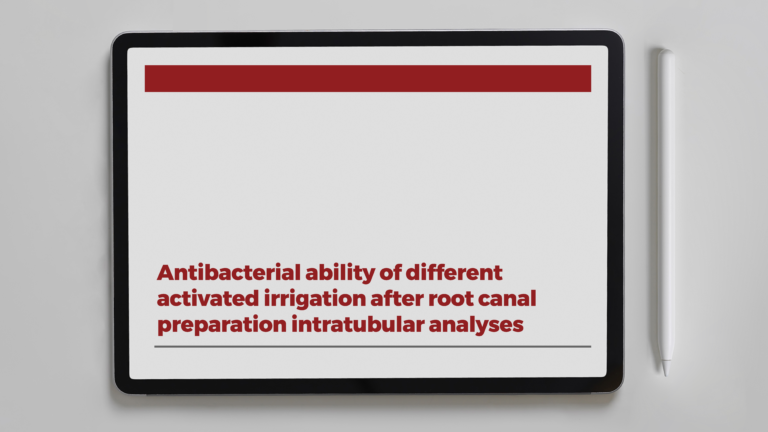To evaluate the influence of novel ultrasonic tips as an auxiliary method for the rotary preparation of flattened/oval-shaped canals. Fortyfive mandibular incisors were selected and divided into one of three experimental g roups (n = 15): Group PFCP – P roDesign L ogic 2 5/.05 + Flatsonic + Clearsonic + Prodesign Logic 40/.01; Group FCP – Flatsonic + Clearsonic + ProDesign Logic 40/.01; and Group PP – Prodesign Logic 25/.05 + Prodesign Logic 40/.05. The teeth were scanned preoperatively and postoperatively using microcomputed tomography. The percentage values for increase in volume, non-instrumented surface area, dentin removal, degree of canal transportation, and centering ratio between the experimental groups were examined. Data were analyzed using the non-parametric Kruskal-Wallis and Dunn’s tests (p < 0.05). Group PFCP showed the greatest volume increase in the total portion of the root canal and the lowest percentage of non-instrumented surface area. Regarding the degree of transportation in the buccolingual direction, statistically significant differences between groups PFCP and PP were observed at the coronal third of the canal. In the mesiodistal direction, no statistically significant differences were observed at the coronal, middle, and apical thirds. As for the centering ratio, statistically significant differences were found in the buccolingual direction. In the mesiodistal direction, no statistically significant differences were observed at the coronal, middle, and apical thirds. The use of novel ultrasonic tips combined with rotary instruments in group PFCP provided a significant increase in volume and reduced the percentage of non-instrumented areas during the preparation of flattened/oval-shaped canals.
Keywords:
Endodontics; Ultrasonics; Root Canal Preparation; X-Ray; Microtomography.



